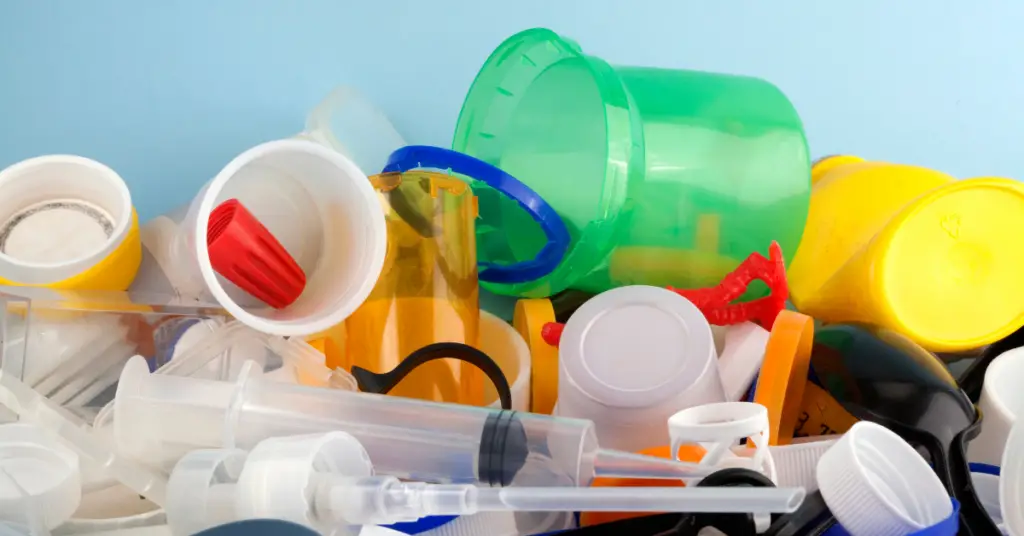Plastics are made out of natural components like cellulose, natural gas, coal, salt, oil through a process of polymerization or polycondensation. Plastics are primarily highly polymerized compounds of carbon and hydrogen, made from substances such as oil and natural gas.
Crude oil is heated and first cracked to extract substances with a simpler structure (i.e.like ethylene and propylene. The molecules obtained are chemically coupled (polymerized) into substances with new properties, such as polyethylene and polypropylene, which are known as plastics.
Since newly formed polyethylene and similar substances in powder or lump form are difficult to handle, they are first melted, mixed with an additive for better processing and formed into granules. (From this stage they are usually referred to as synthetics). They are then sent to the molding shop to make plastic products.
Plastics account for 6.5% of all oil consumption. Japan currently consumes about 230 million kiloliters of crude oil per year. In 2007, 22,630,000 kiloliters of petrol were produced from 232.2 million l of crude oil. In combination with imported naphtha, 49,500,000 kiloliters of naphtha were used as feedstock for petrochemical feedstocks such as ethylene. This corresponds to approximately 16% by weight of the total amount of crude oil.
The amount used to manufacture plastic products accounts for about 6.5% of the sum of crude oil and imported naphtha used each year. Although plastics are made from crude oil through a series of chemical reactions, their production requires fewer resources and energy than iron and steel, aluminum and glass.
Half of the production is polyethylene and polypropylene. Different plastics have different properties and are therefore used differently. A large part of the production consists of polyethylene and polypropylene, and these two together account for about half of the total production.
Around 40% of plastic consumption is made up of bags, packaging such as cling film and building boards, as well as building materials, for which polyethylene and polypropylene are suited.

Erzsebet Frey (Eli Frey) is an ecologist and online entrepreneur with a Master of Science in Ecology from the University of Belgrade. Originally from Serbia, she has lived in Sri Lanka since 2017. Eli has worked internationally in countries like Oman, Brazil, Germany, and Sri Lanka. In 2018, she expanded into SEO and blogging, completing courses from UC Davis and Edinburgh. Eli has founded multiple websites focused on biology, ecology, environmental science, sustainable and simple living, and outdoor activities. She enjoys creating nature and simple living videos on YouTube and participates in speleology, diving, and hiking.

